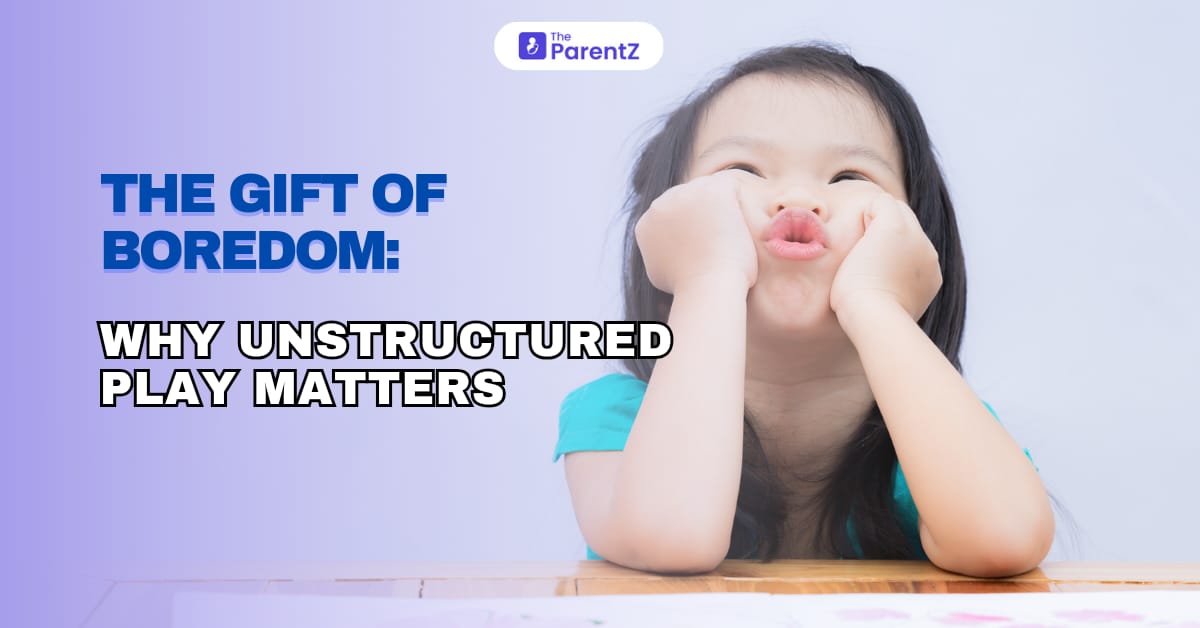In this fast-paced world, our children are bombarded with screens, scheduled activities, and organized playdates. Therefore, the concept of boredom seems like the enemy. As parents, our motive is to keep our kids constantly stimulated because we worry that a lack of activity will hinder their development. However, boredom, particularly through unstructured play, is actually a vital ingredient in a child’s healthy development.
Challenging the Stigma: Boredom Breeds Creativity
As we all know, boredom has gotten a bad rap. We associate it with listlessness and a lack of productivity. But for children, boredom is actually a springboard for creativity. Think about it – when your child is left to their own devices, with no set agenda, their imagination takes center stage. They transform a cardboard box into a spaceship, a pile of pillows transforms into a mountain fortress, and a stick becomes a magic wand. In this unstructured world, the children become the architects, directors, and stars of their own play. This promotes ingenuity and problem-solving skills.
The Benefits of Unstructured Play
The advantages of unstructured play extend far beyond just sparking imaginations. Here are some key benefits:
- Emotional Development: It allows children to experiment with their emotions in a safe space. They can pretend to be brave heroes, scared monsters, or nurturing parents, It helps them express and manage a range of feelings.
- Social Skills: While structured activities often focus on individual goals, unstructured play encourages collaboration. Here, they get to negotiate roles, share resources, and resolve conflicts during their imaginative adventures, building valuable social skills.
- Problem-solving: When left to their own devices, children encounter challenges – a tower that keeps toppling, a costume that needs a missing piece. They have to figure things out, developing critical thinking and problem-solving skills that will benefit them throughout their lives.
- Resilience: It often involves trial and error. Things don’t always go according to plan, and that’s okay! Learning to overcome frustration and adapt to challenges builds resilience, a crucial life skill.
- Self-discovery: It provides a space for children to explore their interests and discover their passions. They get a chance to experiment with different roles, materials, and scenarios, ultimately learning about themselves and what brings them joy.
The Concerns: Addressing Parental Worries
We understand the concerns you might have. Isn’t constant stimulation the key to academic success? Won’t unstructured play lead to laziness or lack of focus? The answer is no. While structured activities have their place, unstructured play complements them. In fact, research suggests that unstructured play can improve your child’s attention span by allowing them to self-regulate and recharge their mental batteries.
Making Time for Boredom: Practical Tips
So, how do we create space for boredom in our children’s lives? Here are some practical tips:
- Limit Screen Time: Set boundaries around screen time to encourage exploration in the real world.
- Provide Open-Ended Toys: Stock your home with toys that can be used in various ways – blocks, play dough, art supplies – to spark creativity.
- Schedule “Boredom Time”: Dedicate specific times during the day or week when there are no planned activities, allowing your child to explore their own interests.
- Get Outdoors: Nature is a fantastic playground. Allow your child to climb trees, dig in the dirt, or chase butterflies.
- Embrace the Mess: Unstructured play often involves a little mess. Relax, let your child explore, and clean up together afterward.
Remember, boredom is not idleness. It breeds curiosity, creativity, and independent thinking. By embracing unstructured play, you’re giving your child a gift – the gift of self-discovery and the joy of exploration. So next time your child complains of being bored, resist the urge to fill their time with another activity. Instead, see it as an opportunity for them to blossom and create their own world of wonder.








Be the first one to comment on this story.